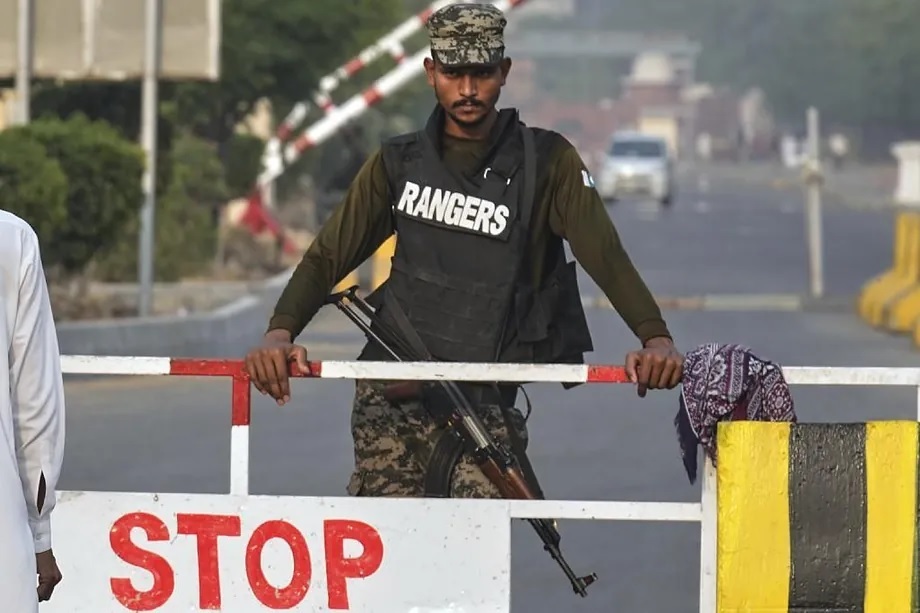Following the brutal killing of 26 civilians, mostly Hindu tourists, by Islamic terrorists in Indian-controlled Kashmir on April 22, Indian Prime Minister Narendra Modi, surprised by speaking in English, something very uncommon for him, to warn that his country "will punish all terrorists and those who support them."
The message was clearly directed at neighboring Pakistan, whom India accused from the beginning of being behind the deadliest attack in the region since a suicide bombing against paramilitary forces in 2019. Islamabad denied any connection to a massacre initially claimed by the hitherto unknown Islamic group Front of Resistance, which Delhi links to the Pakistani militant group Lashkar-e-Taiba, responsible for the 2008 Mumbai attacks. In this latest bloodshed, the terrorists forced their victims to say their names aloud and recite verses from the Quran before executing them.
Since the massacre, the noise around a new armed confrontation between Indians and Pakistanis has been increasing. Tensions between these two nuclear powers are escalating dangerously every day. Modi, pressured domestically by a furious wave of Hindu nationalism demanding blood from the enemy as revenge, has given the army "operational freedom," while Pakistani authorities claimed on Wednesday to have information about an imminent Indian military attack.
It is not the first time that the two largest countries in South Asia (with a combined population of over 1.6 billion people, approximately one-fifth of the world's population) have been under the shadow of a possible war. In the Kashmir valley, India and Pakistan have fought three of their four previous wars. Since their independence from British rule in 1947, both countries have controlled parts of Kashmir —and China a third—.
Last night, for the eighth consecutive night, both troops continued provocations by exchanging fire at various points along the Line of Control, the militarized border separating Pakistani-administered Kashmir (home to around four million people) and Indian-administered Kashmir (13 million).
In the Pakistani part, amid alarms of an imminent attack by Indian forces, authorities have closed a thousand religious schools. During previous military clashes, the Indian army, rather than launching a large-scale attack, has followed the strategy of targeting specific objectives to deter its rival.
Emergency service workers in Muzaffarabad, the main city in Pakistani-administered Kashmir, have also started training schoolchildren on what to do if India attacks. "We have been living in constant fear for a week, especially fearing for the safety of our children," explained a local merchant named Iftikhar Ahmad Mir.
Both countries are heavily armed, although India has a significant advantage: its Defense budget is over nine times that of Pakistan. India has nearly 1.5 million active personnel, compared to just 660,000 from its neighbor.
Watching closely this new chapter in the eternal dispute between the enemies of the Indian subcontinent are the two great superpowers, the United States and China. The US maintains a traditional alliance with Delhi -an important partner for Washington in its effort to counter China's influence in the region- while the Asian giant, which also shares a long history of border confrontation with India, does not hide its support for Pakistan.
From Washington, Secretary of State, Marco Rubio, made the first moves to mediate by speaking with the Indian Foreign Minister and the Pakistani Prime Minister, Shehbaz Sharif, urging the two countries to work together to reduce tensions and restore communication lines, which have been broken since the attack. US Defense Secretary, Pete Hegseth, also called Indian Defense Minister, Rajnath Singh, to condemn the terrorist attack. "I offered my strong support. We stand with India and its great people," Hegseth wrote in X.
The latest to intensify pressure on Indians and Pakistanis from Washington has been US Vice President, J.D. Vance, who has insisted on calling for moderation to avoid a war between the two neighbors with nuclear weapons.
